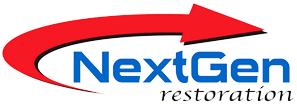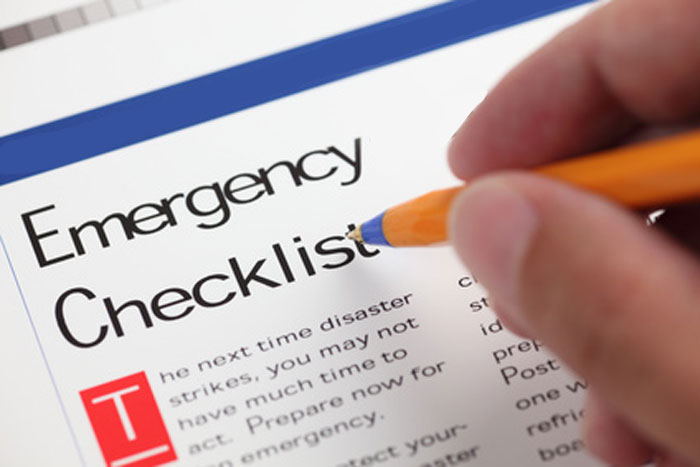How To Create And Ensure Your Emergency Restoration Checklist is Followed
Experiencing water damage, a fire, or any other natural disaster in your home can be devastating. However, if you keep the following emergency restoration checklist in mind when you begin to restore your property back to original order, it will be much easier.
- Perform Mitigation Services Immediately. Your insurance company REQUIRES that you IMMEDIATELY mitigate (i.e. prevent further damage). Since EVERY insurance policy requires this, you must do this to keep your policy in place. Another reason to use an emergency restoration checklist.
Not performing these services immediately gives your insurance company the right to LIMIT or DENY your claim.
Note: Don’t be surprised if your insurance company will not commit to cover your loss immediately, but regardless they DO require that you take immediate action and mitigate.
If you doubt this or think that your home restoration firm conveniently created this rule, ask the following question to your Insurance Company, using this language; “Does my policy require me to immediately mitigate my damages at my structure?” Be sure to write down the name and extension number of the agent you spoke with for your records.
Agent:_______________________________________ Phone # Called (____) ___ – _____
Extension: __________ Operator #: _____________
Common Question: What if my insurance company wants me to get 3 estimates?
Answer: Ask them the following question: “Will the insurance company put in writing that they will be responsible for all damages resulting for the delays associated with getting these estimates, including specifically, exceeding my mold coverage limits?”
Please note that in 15 years within the industry, I have never heard them answer “yes” to this question. While they know the damages that can occur and would NEVER take this risk themselves, they will ask YOU to take it.
- Take photos of the damage as soon as possible after the catastrophe. By having photographic documentation of the damage, you can show your insurance company when filing your claim.
- Find out if your home or business is structurally-sound or can be inhabited safely. In many cases, the answer to this is “no”. In that case, you will most certainly have a policy that has “Loss of Use” or “Additional Living Expenses” clause available to take care of the expenses of being out of your home. A company will often make you feel as if you have to qualify for this coverage. Remember, it isn’t up to them, it’s up to YOU! They must pay for living or business arrangements until the property is safe to occupy.
- Shut off the main power to your electricity (if a flood) and water supply (if a water damage). Make sure the power and water stays off until it is safe to turn them back on. This will ensure no further damage is done to the property.
- Move all of your valuables and important documents to a safe, dry place. Frequently clients will think that things have gone missing only to find them later. By placing them off-site immediately, you can avoid any possible issues before they happen.
- In the event of flooding, try to remove as much of the water as possible. Use buckets to remove standing water from your home; air your home out by running your air conditioner, dehumidifier or fan.
WARNING: All water damage will begin to produce mold within 48 hours and the bacterial issues can begin within hours. Time is of the essence! You need to hire a water damage restoration company, such as NextGen Restoration to extract the water, stabilize the structure and dry all of the materials to their original moisture content. Proper mitigation activities WILL prevent mold growth and other secondary damages from the flooding.
- If a fire has occurred, cover any damaged windows and doors if possible. Use plywood or plastic to cover broken windows and doors, as well as any damaged areas of the roof to prevent more moisture from entering.
Please note that Professional Mitigation / Emergency Services Companies like NextGen Restoration, Inc. are equipped and should stand ready 24/7/365 to respond to these needs.
- Inspect the property completely. Be sure to take notes (photos, videos, etc) of all of the damage you see. Your restoration firm should thoroughly document your loss for you as they will be making changes to the structure before the insurance company arrives. This is very important that they document these issues to protect you. It will help with the restoration process as well.
- Contact your insurance company in a timely manner. Most insurance companies will prefer that you contact them before doing anything else and the reason is simple: they want to control the loss. They know that if they can get their choice of a contractor on the project, they can control the process indirectly through the contractor. While not all contractors succumb to this pressure, many are on “preferred vendor lists”, specifically BECAUSE the carrier has its own emergency restoration checklist. The problem is, how do you know who is trustworthy and who is not? To eliminate all doubt, we would suggest that you ask your vendor if they are on the company’s “Preferred Vendor List”. If they are, believe me that there is an economic reason for this. We recommend that you use a contractor that is NOT on the list, and is therefore unbiased. This way, there can never be a conflict of interest or a split loyalty. You deserve to have someone without any other motive but performing your work to standards and giving you back a properly-documented, properly-dried and fully-restored structure.
Please note: We HIGLY recommend that you allow your contractor to report your claim. Insurance policies have very specific terminology and exclusions that you could accidentally activate without knowing it. That very friendly person taking your claim (recording the conversation as well) is there as their first line to collect the info necessary to support or deny your claim. Their questions are intentional. Many denials are determined incorrectly because someone said something that they did not know meant something else in “insurance speak”.
Most of the time, your insurance company will suggest a restoration contractor that follows their restoration checklist and / or protocols. You also have the option of seeking out your own restoration specialist. The following checklist will help you with that process.
- Find a restoration company that specializes in fire, flood and natural disasters. This type of contractor has certified and specially-trained technicians with expert equipment.
- Be sure the company is licensed & certified. You want to hire a restoration contractor that is licensed, bonded and insured in your state. Make sure they are also certified to use the proper equipment.
- Ask for references. Call the company’s references to make sure they are competent. While NextGen Restoration does not belong to the Better Business Bureau (we don’t believe in paying for ratings), you will find that we maintain an *A* rating.
- Don’t hire a company that requires a large deposit to begin work. Unfortunately, there are some companies that prey on disaster victims. Do your research and find out what the average down payment is for restoration contractors. If yours is overcharging, look elsewhere. Please note that it is not unusual for a contractor to collect a deposit in the amount of a deductible to start work. No money down should be a red flag. No legitimate company can be a bank for you! It’s not good business and rest assured, if they are, it’s costing you somewhere. Buyer Beware!
Your best plan for getting your life back to normal after a fire, flood or natural disaster with the minimal drama and pain is to hire the right company the first time. To this end, please refer to this checklist and the other articles provided on the attached link. (insert link) Not only will it help you to stay safe and focus on what needs to be done, it will also help the restoration contractor you hire to get the job done quickly and completely. Once you have followed the steps and have begun the restoration process, your life will be back to normal before you know it.
NextGen Restoration specializes in clean-up, repair, restoration and rebuilding after fires, floods, storms, and natural disasters. We offer dependable, 24/7 emergency services 365 days a year. Our team is trained, certified and experienced in all aspects of the restoration process.
Call us today so we can help you get your life back in order! 813-962-6855


